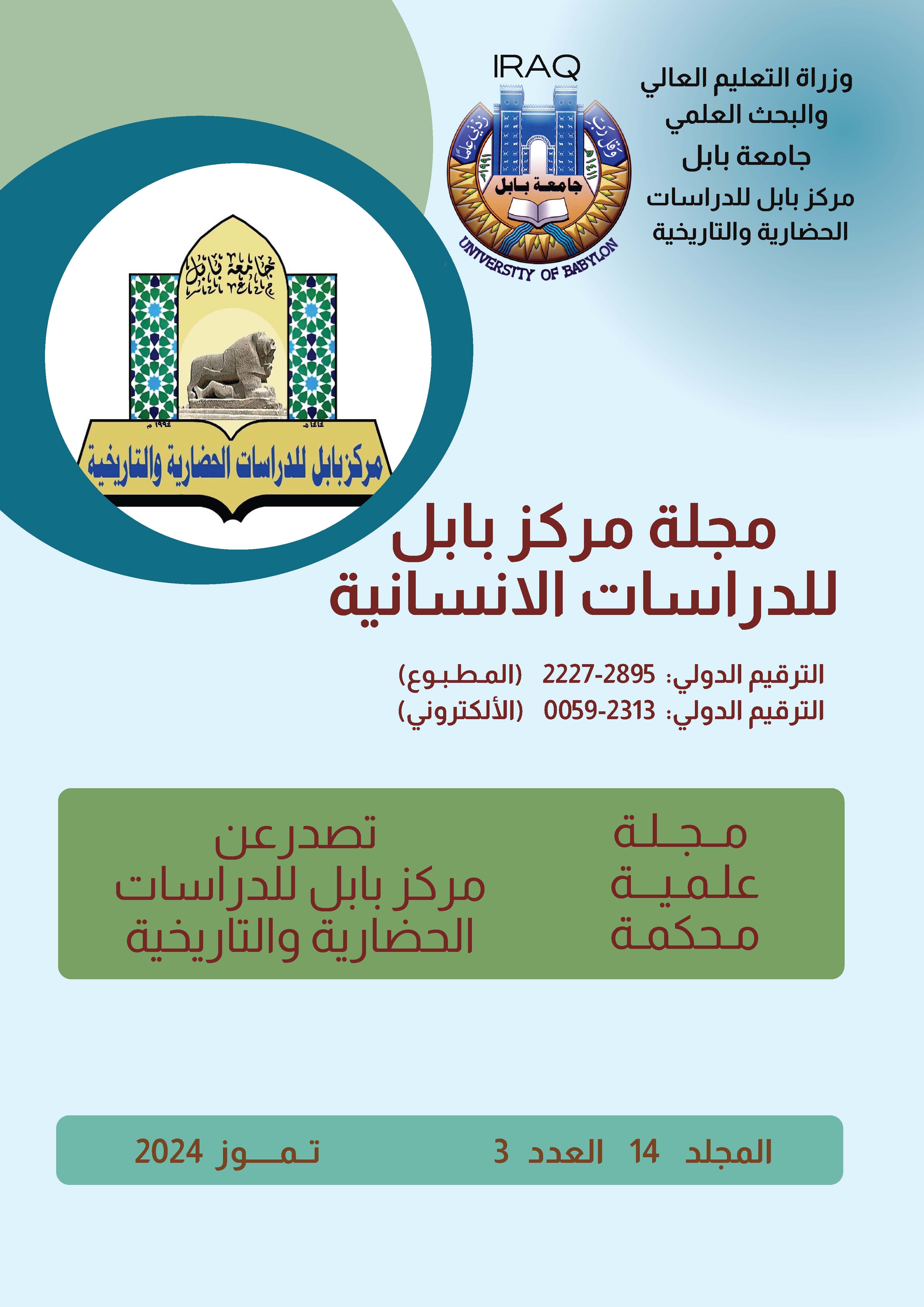Criticism of religious reason in my novel Nahib Al-Rafidain and Faridun have three sons who are educated A comparative study
Keywords:
religious mind, novel, Abdul Rahman Majeed Al-Rubaie, Abbas Maroufi.Abstract
This research aims to reveal the religious mind in the Iraqi novel (The Wailing of the Two Rivers) by Abd al-Rahman Majeed al-Rubaie (1939) and to compare it with the Persian novel by Abbas Maroufi (1957) (“Faridoun Has Three Sons”). The importance of this topic is focused on revealing the concept of the religious mind in all its manifestations and its social and individual practices, and revealing the relationship between the Iraqi and Iranian novels with regard to the novel’s orientation towards the manifestations of religious representation and criticizing it with a cultural approach according to the American school. The results drawn indicate that the religious mind appears in several axes, including duality. Social behavioral behavior, and Al-Rubaie revealed how the subordinate’s relationship with religion and the influence of religious authority on individual and social behaviors, while this scene was repeated in Maroufi’s novel with various forms of religiously and socially prohibited practices in different spaces. As for the dualities of compulsion and choice, warning and temptation, the narrators reveal the effect of these dualities on the mind. Social and its basic role in basic concepts such as marriage and other works, and the last axis is represented by the sanctity of the reference and the religious fatwas that reveal how this reference and the fatwa affect the religious mind in society and its impact in the depths of souls.







